'We've sung for Princess Catherine and the King'
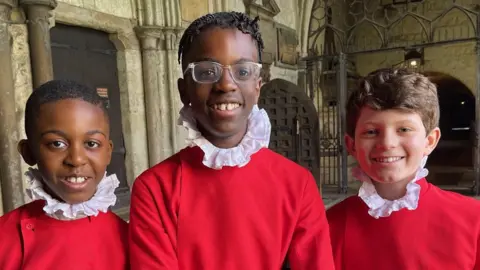 BBC
BBCFor the pupils of Westminster Abbey Choir School, singing for members of the Royal Family in one of the most famous churches in the world is something they take in their stride. Singing for them on the 80th anniversary of VE Day is no different.
"I've sung for the Commonwealth and for the Royal Carols," explains 11-year-old Zuriel." The King was at the Commonwealth and it was really good. And Princess Kate - Catherine - was at the carols."
"I'm so excited when I see so many people come to a big occasion at this church," agrees 12-year-old Nkunzi.
"VE Day is especially important in this country because it marks the end of the war. People sacrificed their lives so we could live in peace today."
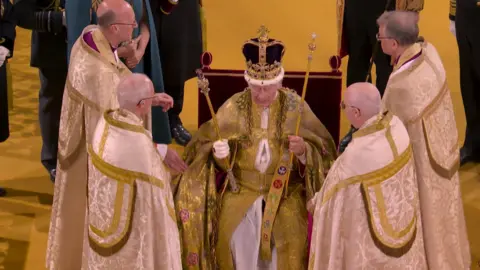
"It's such a big opportunity that you are so grateful for, and you'll never get it again," says 12-year-old James. "You feel excited and you'll remember it years later."
Westminster Abbey Choir School is unique. There are just 30 pupils here, spread over five year groups. They study a full range of subjects until they leave for secondary school aged about 12 or 13 when their voices change. The boys audition to get in and sing in up to eight choral services a week in term time as boarders.
"You don't have to have any prior musical knowledge," explains Nkunzi." Before I came here I didn't know a thing about music, I couldn't tell the difference between a C sharp and an A."
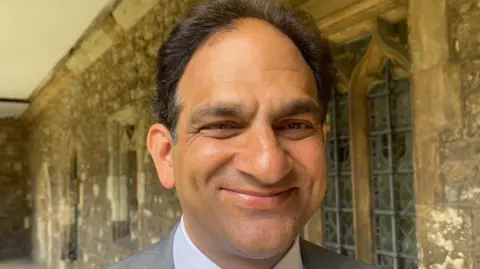
"What the choristers do is of extraordinary complexity; seven or eight services a week, many hundreds of people listening, and a relatively short rehearsal time, says master of the choristers and organist Andrew Nethsingha.
"My job is to make them feel it's easy. If I don't tell them that this music is difficult they won't think it is difficult."
Mr Nethsingha joined the choir school shortly before the King's Coronation.
"It had been 70 or so years since the last coronation, and so not many people I could ask for advice. I had a wonderful file of letters between the man who had been the organist in 1953 and the Archbishop of Canterbury at the time, so I was able to consult their notes and see their advice to their successors."
He himself grew up at a choir school in Cambridge, where his late father Lucian Nethsingha had been the first cathedral organist of colour.
"My dad was born in Ceylon, now Sri Lanka, and came over here in 1954 when he was 18 to study music in Cambridge and London. I've followed in his footsteps."
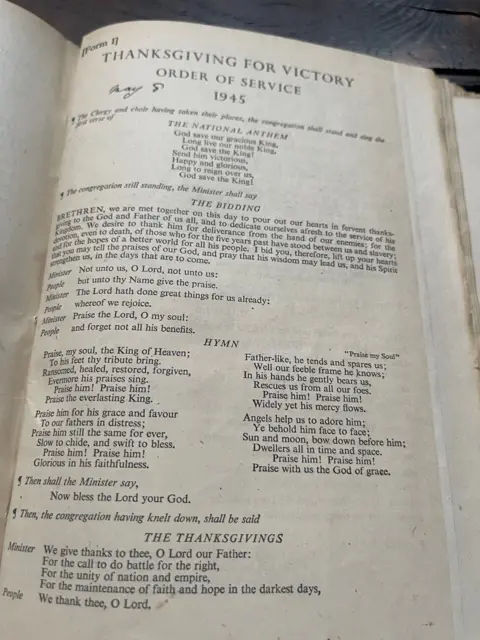
On 8 May 1945, a total of about 25,000 people came to Westminster Abbey for hourly services throughout the day, to give thanks for Allied victory in Europe.
Exactly 80 years later, there will be just over 1,000 worshippers, including more than 70 World War Two veterans.
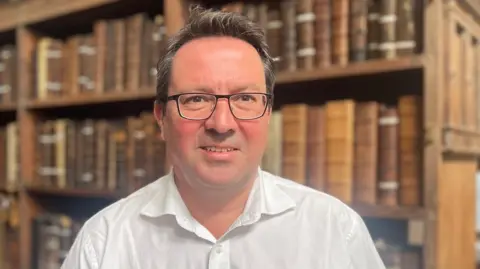
Matthew Payne is the keeper of the muniments at Westminster Abbey. He looks after the library and the documents and deeds relating to the church, including the original Order of Service from 8 May 1945. Records show people were eager to come to the abbey to celebrate the end of the war in Europe.
"They were queuing around the block to get in, there were 14 services throughout the day and every service was full," he said.
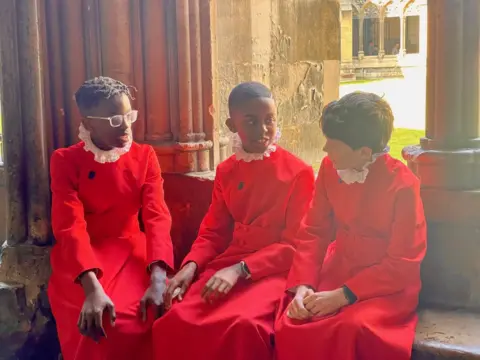
The choristers for this year's service have been preparing, as they usually do, with song school every day before lessons, and evensong each evening.
Westminster Abbey Choir School is always looking for new recruits to replace the boys whose voices break. Its pupils come from all over London, the UK and even internationally.
One of the choristers, Nkunzi, has this advice for anyone curious about joining the choir school: "Just come and audition and have a go with Mr Nethsingha.
"You don't have to have any prior musical knowledge and now I'm singing in one of the best churches in the world. And the football's really great as well!"


Listen to the best of BBC Radio London on Sounds and follow BBC London on Facebook, X and Instagram. Send your story ideas to [email protected]
